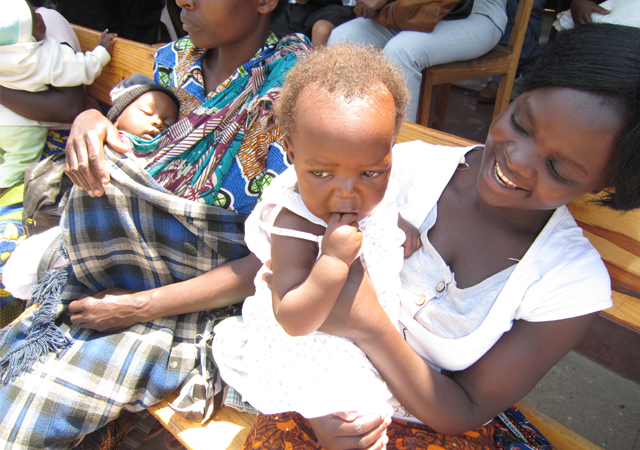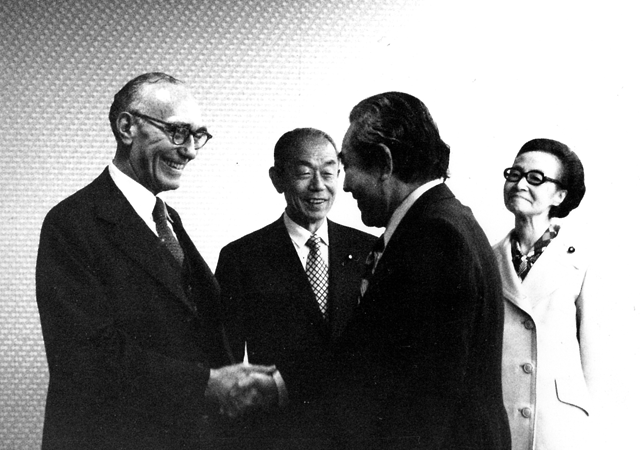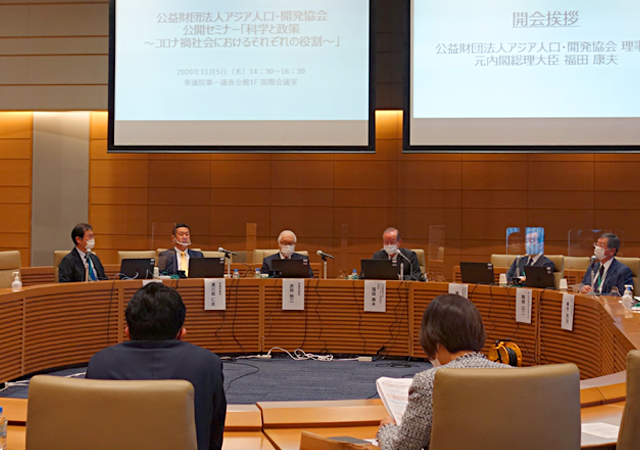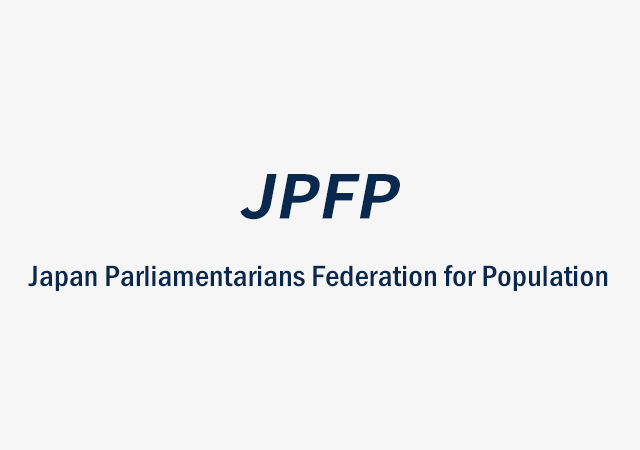JPFP
Since 1974Japan Parliamentarians Federation for Population
Strongly moved to act by population issues and accompanying crises in natural resources and food security,
a group of Japanese parliamentarians established the Japan Parliamentarians Federation for Population (JPFP) in April 1974,
the world’s first supra-party organization with the objective of enhancing Japan’s international cooperation
in the field of population and passing its unique experiences on to the world.
ABOUT JPFP―
CHAIR’ S MESSAGE―
I am pleased to inform you that I have been appointed the 7th Chair of the Japan Parliamentarians Federation for Population (JPFP).
JPFP is a parliamentary caucus that takes pride in its history and tradition of having been the first country in the world to propound “population and sustainable development” and of promoting collaboration with parliamentarians from around the world.
To bring about a society in which no one is left behind, we will address global challenges by organically integrating the three concepts of the SDGs, human security, and population; further strengthening solidarity with parliamentarian organizations around the world; and putting efforts into advancing soft power. We will, moreover, actively promote dialogue with women and with the next generation of youth.
I would sincerely like to ask for your guidance and support.
Hon. Yoko KamikawaFormer Minister of Justice
Chair of JPFP
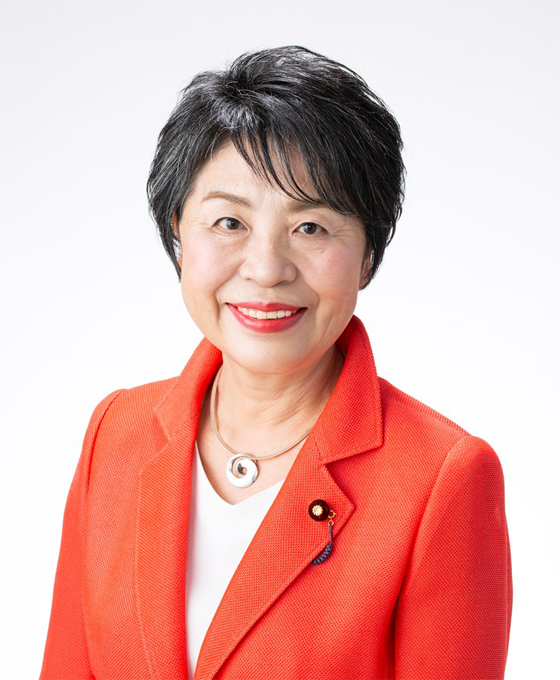
MISSION―
The explosive population growth is a considerable obstacle to social and economic development in developing societies. With this realization, a group of Japanese Parliamentarians led by former Prime Minister Nobusuke Kishi went on an inspection tour in 1973, focusing on the population situation in Asian nations. It struck the group that Japanese international cooperation in the field of population, which had the potential of impeding the peaceful development of humanity, was significantly lagging behind other governments of developed countries.
As a result of the inspection, a group of Japanese Parliamentarians deeply concerned about the potential crisis of food and resources mainly related to the population issue, established JPFP in April 1974. It was the world’s first non-partisan organization committed to population and all that it involves.
The population issue can never be forced. The resolution of the population issue requires elected representatives of the people to be actively engaged in formulating and implementing population policies and programmes. JPFP, in close cooperation with the United Nations Population Fund (UNFPA), the International Planned Parenthood Federation (IPPF) and other relevant organizations, promotes a number of programmes including exchanges among parliamentary groups in the field of population and development, dispatching survey missions to various countries, and taking prominent roles in international conferences on population and development.
JPFP brochure
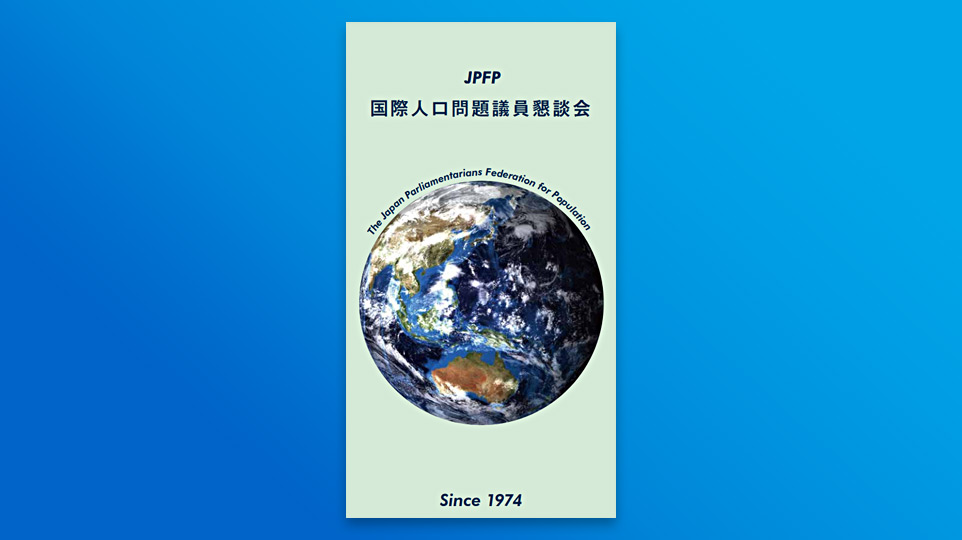
(PDF:1.25MB)
JPFP CHAIRS―
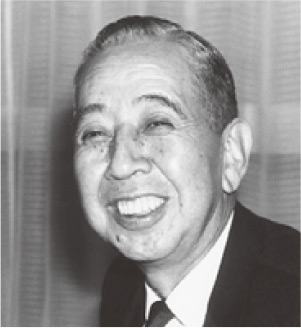 Mr. Nobusuke KishiFormer Prime Minister1974-1979
Mr. Nobusuke KishiFormer Prime Minister1974-1979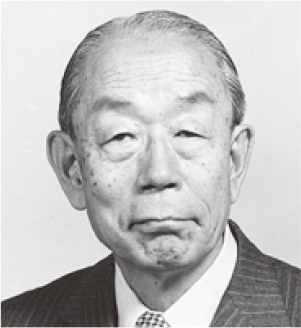 Mr. Takeo FukudaFormer Prime Minister1979-1990
Mr. Takeo FukudaFormer Prime Minister1979-1990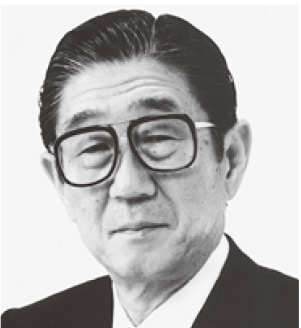 Mr. Shintaro AbeFormer Minister of
Foreign Affairs1990-1991
Mr. Shintaro AbeFormer Minister of
Foreign Affairs1990-1991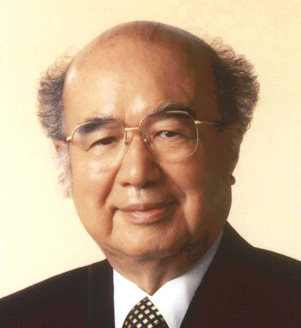 Dr. Taro NakayamaFormer Minister of
Foreign Affairs1991-2007
Dr. Taro NakayamaFormer Minister of
Foreign Affairs1991-2007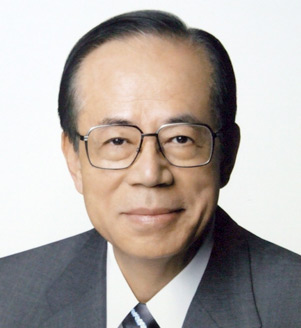 Mr. Yasuo FukudaFormer Prime Minister2007-2012
Mr. Yasuo FukudaFormer Prime Minister2007-2012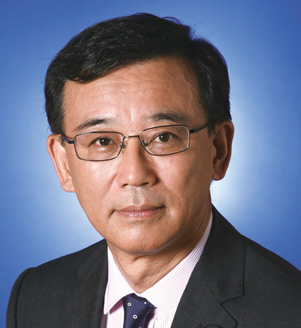 Mr. Sadakazu TanigakiFormer Minister of
Justice2013-2017
Mr. Sadakazu TanigakiFormer Minister of
Justice2013-2017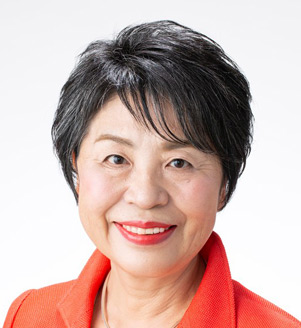 Ms. Yoko KamikawaFormer Minister of
Justice2019-
Ms. Yoko KamikawaFormer Minister of
Justice2019-JPFP’ s 40th Anniversary Booklet
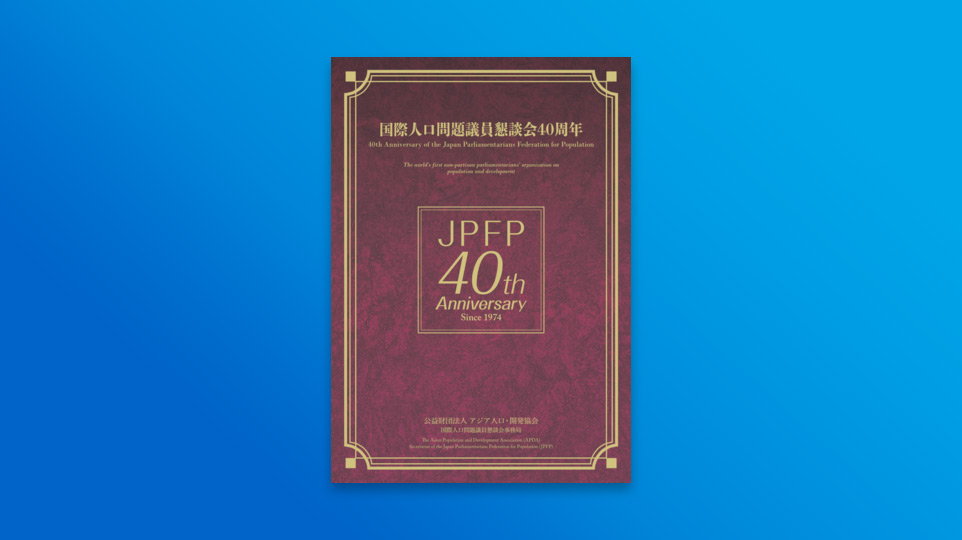
It was 40 years ago, in 1974, that a group of Japanese parliamentarians established the Japan Parliamentarians Federation for Population (JPFP), the world’s first non-partisan parliamentary group working on population and development issues, under the conviction that sustainable development cannot be achieved without addressing population issues. Their far-sighted, visionary leadership extended beyond the national boundary to assist other countries to form a parliamentary group of this kind, affirming that parliamentarians, as representatives of the people, should act as mediators between the government and the people to solve these issues.
(PDF:16.8MB)
JPFP ACTIVITY OUTLINES―
Domestic Activities
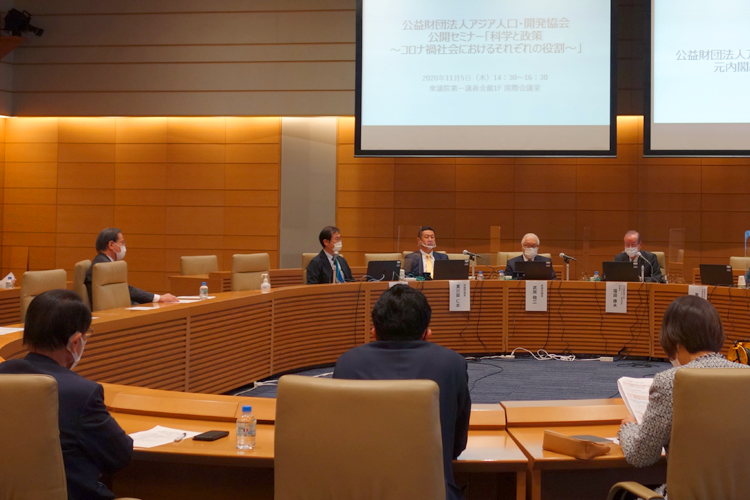
At the national level, JPFP holds general assembly meetings and executive members’ meetings, and its committees meet according to their topics of interest. The committees invite experts to engage them in discussions on a chosen theme, in order to deepen understanding on population issues. JPFP makes policy recommendations to ministries and agencies on the importance of global population issues and supports the governmental contribution to alleviate population issues.
International Conferences
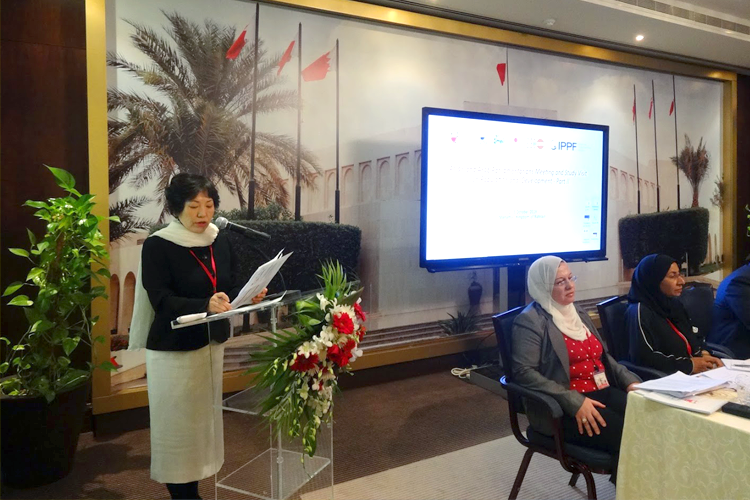
Members of JPFP are frequent participants at international conferences on population and development. JPFP is an active participant at parliamentary meetings and study visits in Asia, Africa and Arab regions held by its Secretariat, the Asian Population and Development Association (APDA), every year and the activities of the Asian Forum of Parliamentarians on Population and Development (AFPPD).
JPFP took a leading role at the International Conference of Parliamentarians on Population and Development (ICPPD) that met in conjunction with the International Conference on Population and Development (ICPD) in Cairo, Egypt in 1994. At this ICPPD, a forum of parliamentarians on population and development for the African and Arab regions was established as a result of the successful encouragement of JPFP.
Following up on the successful conference at Cairo, JPFP maintains its high level presence working in conjunction with the UN-sponsored conferences. An example of the outcomes was that The Hague Declaration adopted at the International Forum of Parliamentarians (IFP) on ICPD Review was explicitly reflected in the UN General Assembly resolution.
Study Visit Programmes
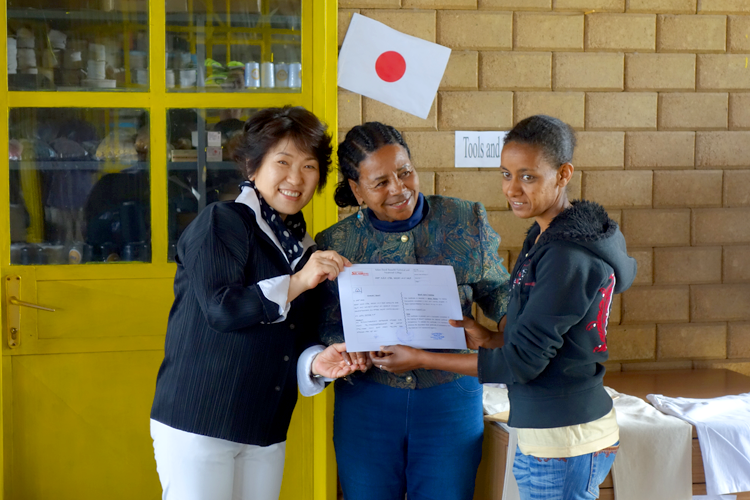
JPFP sends a study mission to selected countries. The purpose is to inspect field activities of organizations such as UNFPA, IPPF, and the Japan International Cooperation Agency (JICA) in order to review the progress and find disincentive to achieve population and development projects. Then JPFP often recommends to improve the effectiveness of cooperation and assistance. The study visits also contribute to the strengthening of bilateral cooperative relations and revitalization of parliamentarians’ activities through exchanges with host government officials and legislative counterparts.
Also, JPFP invites legislators from countries visited by its members through the study visit programme in order to inspect advanced health facilities and welfare institutions and to exchange views with members of JPFP. Japan was the first non-Western country to achieve demographic transition. Members of Parliament in Asia and elsewhere convey the benefits from orientating themselves with the background and history of Japan’s population policies and paradigm for development in their national programmes.
JPFP EXECUTIVE MEMBERS―
- JPFP EXECUTIVE MEMBERS
-
JPFP Executive Members



